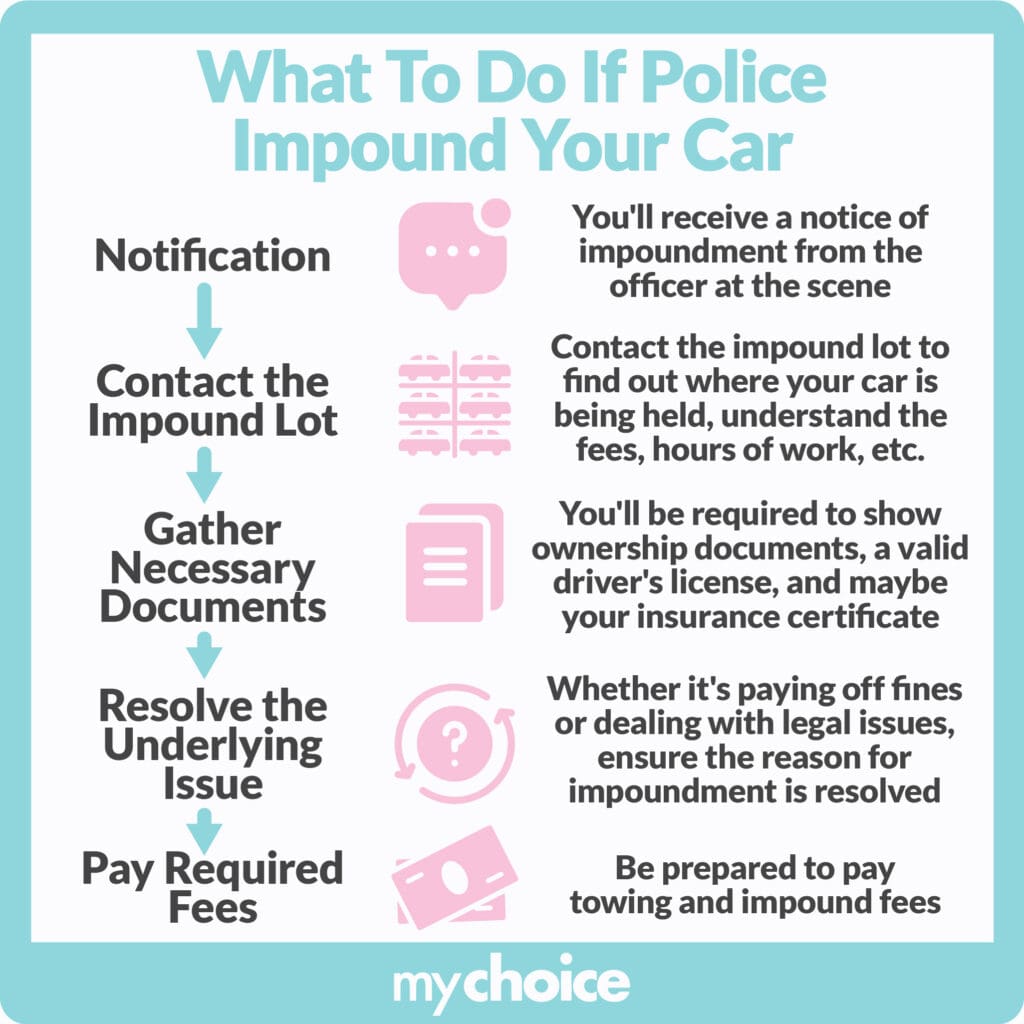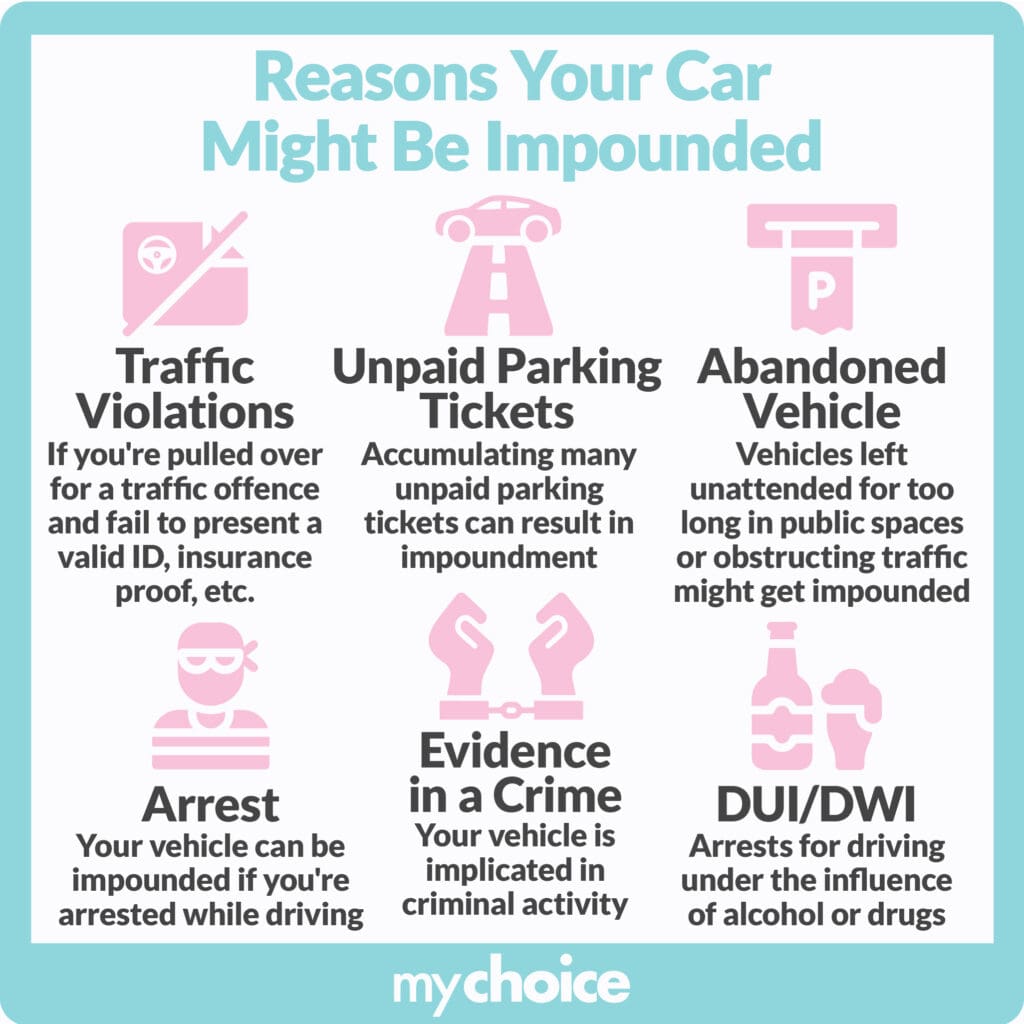Getting your car impounded anywhere can be a problem, especially if you need the car for work or other important purposes.
Generally speaking, if your car is impounded, then you need to work with the local authorities to retrieve it. However, the procedure for getting your car out of impound differs by area. For example, if your car was towed in Toronto, you can call the Toronto Police Service’s non-emergency line for the next steps.
What happens if your car is impounded somewhere other than Toronto? How does impoundment affect your insurance rates? To learn more about those, let’s dive deeper into vehicle impoundment in Canada.
Understanding Police Impoundment in Canada
So, what happens if your car is impounded by the police? If your car is impounded by police, you generally need to wait until its mandated impounded period expires. Then, you can pay the associated fees to get your vehicle released. Remember that the procedure and process may differ depending on your location.
The infographic below outlines the steps one should take if their car has been impounded by the police:

How Impoundment Affects Your Car Insurance Rates
Unfortunately, impoundment does negatively affect your car insurance rates. Some reasons for impoundment, like stunt driving, may get you marked as a high-risk driver, which similarly increases your insurance rates.
It’s best to drive safely and ensure your car doesn’t get impounded in the first place to keep your auto insurance rates from jumping.
Navigating Car Impoundment Differences in Different Provinces
Different provinces treat car impoundment differently. Let’s take a look at four Canadian provinces and how impoundment works in each one:
Main Reasons Your Car Might Be Impounded (Infographic)
The below infographic provides an informative overview of the common reasons your car might be impounded in Canada.

Are you interested in knowing how unpaid parking tickets may impact your insurance rates? Visit our article to learn more.
Key Advice from MyChoice
Now that we’ve learned more about vehicle impoundment and its consequences, here are some top tips to keep in mind:
- Your vehicle can be impounded even if somebody else is driving it. Always ensure that whoever you lend your vehicle to has an active licence and won’t commit traffic offences.
- Getting your vehicle impounded raises your car insurance rates. Therefore, keeping your vehicle from the impound lot will help you save money on car insurance.
- Different provinces have different rules about vehicle seizure and impoundment. Familiarize yourself with the rules in your home province to ensure you don’t get confused if your vehicle gets impounded. This also applies to any province in which you regularly drive your car.








